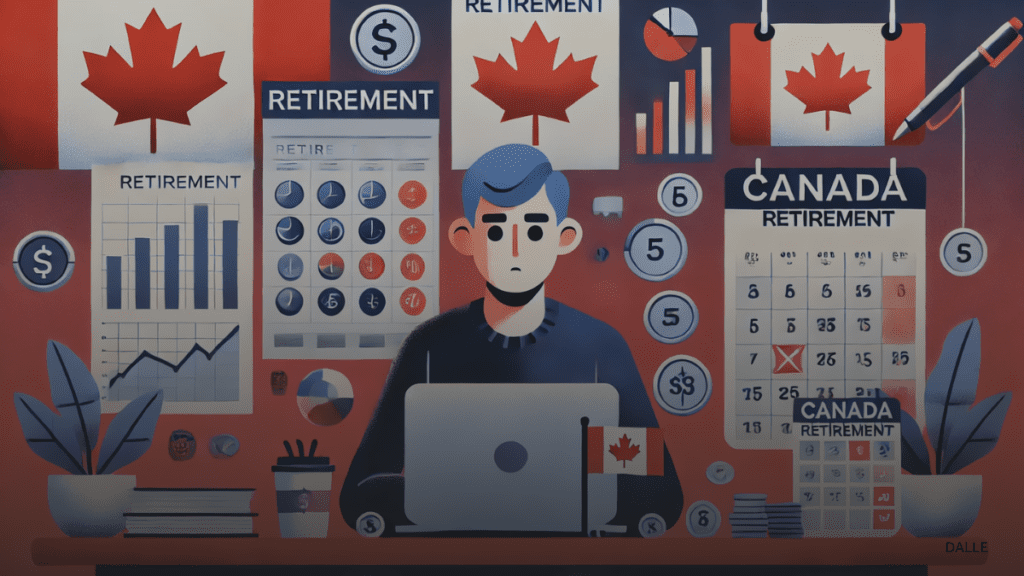Hey Hustlers! Retirement planning can be challenging, especially if you’re single and without a pension. But don’t worry, HustleHub has got your back. Let’s dive into some practical tips to ensure you have a comfortable and secure retirement.

Key Takeaway Box
Planning for retirement as a single person in Canada, especially without a pension, requires strategic financial planning. This article provides essential tips on managing costs, maximizing tax benefits, and exploring retirement income options like CPP, OAS, and annuities.
Cost of Living as a Single Person in Canada
One-third of Canadians struggle to plan for retirement, and 75% say their cost of living negatively impacts their savings. For singles, this can be even more daunting. According to Statistics Canada, a one-person household had total expenditures of $49,661 in 2021, while couples without children spent $91,121. This means singles need to save more to maintain the same standard of living.
| Household Type | Total Expenditures (2021) |
|---|---|
| One-Person Household | $49,661 |
| Couples Without Children | $91,121 |
Shelter costs are the largest expense, with singles spending 37% of their income on shelter compared to 30% for couples. This highlights the need for singles to save more to cover these costs in retirement.
Tax Advantages for Couples vs. Singles
Couples have more opportunities to minimize taxes compared to singles. Here are some strategies couples can use:
- RRSP Contributions: Couples can contribute to the higher-income partner’s RRSP for a larger tax refund.
- Spousal RRSP: The higher-income partner can contribute to the lower-income partner’s RRSP, getting a tax deduction today while the lower-income partner withdraws the income in the future.
- Tax Credits: Couples can combine or allocate tax credits like donations or medical expenses for a larger tax reduction.
- Pension Income Splitting: Couples can split the higher-income partner’s eligible pension income, including RRIF withdrawals after age 65.
These strategies make it easier for couples to minimize taxes, but singles need to be more strategic in their planning.
Options for Single Retirees Without a Pension
Canada Pension Plan (CPP) Deferral
Deferring CPP can be beneficial for healthy seniors in their 60s. If you live into your 80s, you may collect more pension income by deferring CPP, which increases by 8.4% per year after age 65, plus an annual inflation adjustment.
Old Age Security (OAS) Deferral
Like CPP, deferring OAS can be advantageous for seniors who live into their 80s. OAS increases by 7.2% per year after age 65, plus an annual inflation adjustment. However, low-income seniors might qualify for the Guaranteed Income Supplement (GIS) between 65 and 70.
Annuities
Annuities can provide a steady income stream for life. You can buy an annuity from a life insurance company using non-registered or registered savings. This can be a good option if you’re in good health and prefer a conservative investment.
| Retirement Income Option | Benefits |
|---|---|
| CPP Deferral | Increases by 8.4% per year after age 65 |
| OAS Deferral | Increases by 7.2% per year after age 65 |
| Annuities | Provides a steady income stream for life |
Survivor Benefits in Canada
Most DB pension benefits are payable only to surviving spouses. CPP survivor pensions can be paid to the spouse or common-law partner of a deceased contributor. However, single retirees are somewhat disadvantaged as their children usually do not qualify for a benefit if they die.
Advice, Accountability, and Cognitive Decline
As we age, making sound financial decisions can become challenging. Single seniors don’t have a partner to bounce ideas off, which can lead to stress about retirement and financial planning. Seeking financial advice and having accountability partners, like adult children or friends, can help keep spending and other financial decisions in check.
Conclusion
Planning for retirement as a single person without a pension requires careful consideration and strategic planning. By being conservative, deferring pensions, considering annuities, seeking financial advice, and proactively planning, you can ensure a secure and comfortable retirement.
For more tips and resources, visit HustleHub.